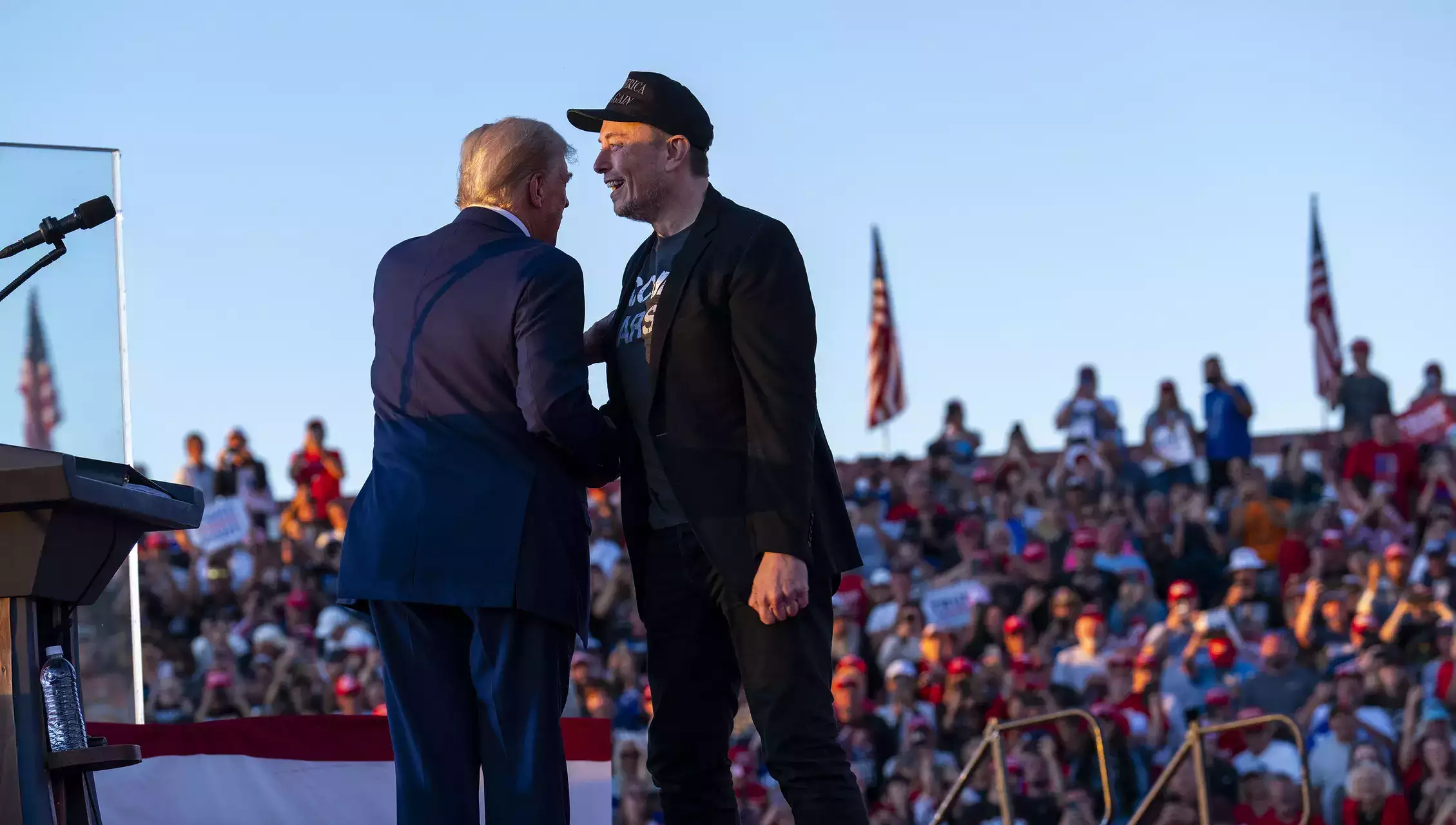 Tesla generates a surplus of credits because it makes only electric cars. Selling the credits brought in USD 739 million in the third quarter, or one-third of the company's profit.
Tesla generates a surplus of credits because it makes only electric cars. Selling the credits brought in USD 739 million in the third quarter, or one-third of the company's profit.Elon Musk defied conventional corporate wisdom by committing wholeheartedly to Donald Trump's presidential campaign, donating tens of millions of dollars and running a get-out-the-vote drive.
Now that bet has paid off, giving Musk a direct line to the White House that he may be able to use to bend policy in ways that could benefit Tesla, his electric car company. Trump has even floated the idea of appointing Musk to head a "government efficiency" commission.
One indication of how much Tesla could benefit was evident on Wall Street. The company's share price rose nearly 15% on Wednesday.
It is too early to say how much of Musk's newly acquired political capital he will allocate to Tesla as opposed to his other businesses like SpaceX, a major government contractor, or xAI, an artificial intelligence startup.
But investors clearly believe that a Trump administration will be good for Tesla, despite the president-elect's often-expressed disdain for electric vehicles and renewable energy.
Musk's top priority is likely to be easing regulations on self-driving software that he has described as pivotal to Tesla's future. That could include pressuring the National Highway Traffic Safety Administration to be less aggressive in scrutinizing the company's technology. The safety agency is investigating whether a Tesla system that the company calls "full self-driving (supervised)" was responsible for four collisions, including one that killed a pedestrian.
The Trump administration and Republicans in Congress could also pass a national standard for self-driving cars, overriding the current patchwork of state rules. A national standard has long been a goal of Tesla and other companies like Waymo, a business owned by Google's parent company that operates a self-driving taxi service in Phoenix, Los Angeles and San Francisco.
"Elon will likely be rewarded with some efficiency czar position, which could accelerate adoption of a single autonomous driving standard instead of 50 different state regulations," Gary Black, managing partner of the Future Fund, which holds Tesla shares, said Wednesday on social media.
But the bonhomie between Trump and Musk has obscured major policy differences between the two men that may now come to the fore.
Trump has vowed to end Biden administration policies that award tax credits to electric vehicle buyers and subsidies for carmakers that build cars and batteries in the United States.
The subsidies will be worth USD 800 million to General Motors this year, the company has said, allowing it to offer an electric sport utility vehicle, the Equinox, for as little as USD 35,000 before tax credits.
Elimination of the subsidies would probably hurt other carmakers more than Tesla, but it would suffer, too.
Musk would also have to worry that Republicans would eliminate rules that compel carmakers to buy clean air credits if they fall short of pollution standards.
Tesla generates a surplus of credits because it makes only electric cars. Selling the credits brought in USD 739 million in the third quarter, or one-third of the company's profit.
A trade war with China would also be bad for Tesla. It is one of Tesla's largest markets, and the company operates a factory in Shanghai that exports cars around the world. Trump has promised to impose punitive tariffs on Chinese goods.
"Trump is no fan of the EV industry," Black said on social platform X.
Still, others were less worried. Tesla thrived in the past without tax credits, said Ben Rose, president of Battle Road Research, who follows the company. And the cars the company sells in the United States are all made in Texas and California, he noted. "Tesla has wisely shielded itself from restrictive tariffs," Rose said in an email.
